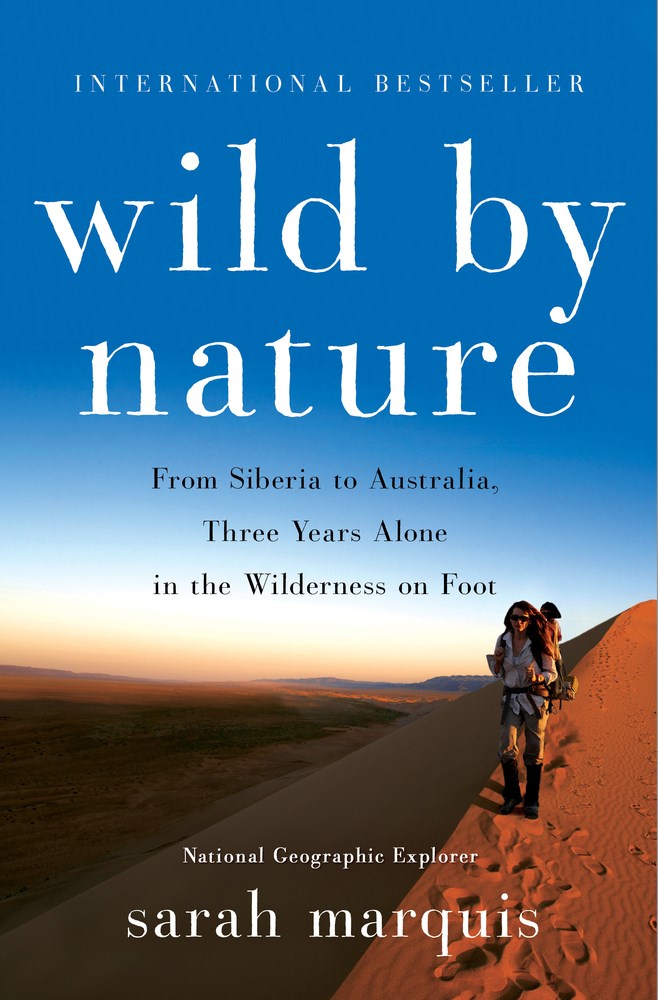As a professional travel writer, I periodically have to deal with one of the hazards of my profession. It has nothing to do with airport security or brain-eating larvae. No; because of my work, I'm often required to read the latest travel memoirs.
That might not sound like a hazard, or even a chore, but so many fall into the same pattern that it certainly can be a big bore.
You open up the book to find that the writer is suffering some form of life-altering calamity. It turns out - surprise, surprise - that a loooong trip is the cure, usually with some sort of goal along the way (to understand what love means, perhaps, or to find the world's most perfect cheese). After guffaw-worthy misadventures, bouts of loneliness and unexpected camaraderie, the author has a revelation, which usually boils down to "we are all brothers." And then he returns home, a better (and more fit and tanned) person.
So it was with a weary sigh that I approached Sarah Marquis' recently translated international bestseller Wild by Nature: Three Years Alone in the Wilderness on Foot.
And a gasp as I dug into the first chapter, in which Ms. Marquis sets off with no demons at her heels and finds no comfort or wisdom (or very little) in the people she encounters in Mongolia, the starting point for her attempt to walk the planet from the top of Asia to the bottom of Australia (with a freighter trip over the water in between). And why she's so bereft of human camaraderie comes like a thunderclap: It's because she's a woman traveling alone, and the vast majority of travel memoirs (with the big exceptions of books by Cheryl Strayed and Elizabeth Gilbert) have been written by men.
That gender gap plays out in a number of distressing ways, from her having to sleep in drainage pipes to hide from would-be rapists on the steppes of Mongolia; to villagers setting fires around her tent in the mountains of China to force her to move on (possibly because they thought she was a ghost). She meets some kindred souls, people who help her along her journey (particularly in Thailand and Australia), but Marquis finds, mostly, that she needs to avoid human contact in order to survive.
Much of the book becomes about her basic survival (I don't want to give away any plot points, but she has many hair-raising misadventures), and her finding joy and comfort in the nature she encounters. Her writings on snakes that cross her path, the vast and unbroken landscapes of Mongolia and the Australian Outback, passing birds and other critters, are both lyrical and transporting.
Ms. Marquis was named "Explorer of the Year" by National Geographic in 2014. After reading her compelling memoir, you may want to write a letter of complaint to that venerable institution. Ms. Marquis really is "Explorer of the Decade," and I can't wait to read about her next adventures.
Note to the reader: Please be sure to confirm all rates and details directly with the companies in question before planning your trip. The information in this column was accurate when it was released, but prices are competitive, sometimes limited and can always change without notice.
Pauline Frommer is the Editorial Director for the Frommer Travel Guides and Frommers.com. She co-hosts the radio program The Travel Show with her father, Arthur Frommer and is the author of the best-selling Frommer's EasyGuide to New York City.
